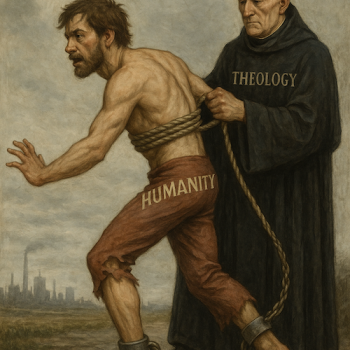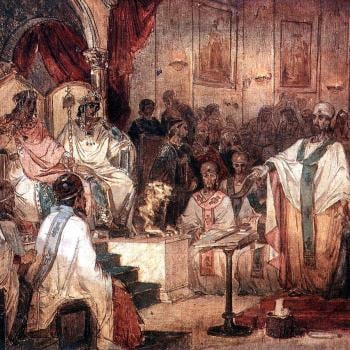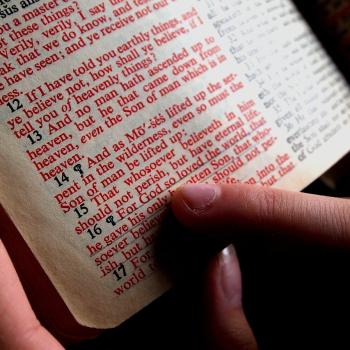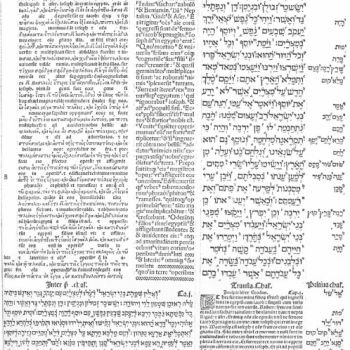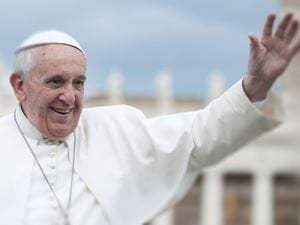
The Roman Catholic Church does not teach that the pope is sinless. This misconception may stem from confusion around a dogma it does teach called “papal infallibility.” When Catholics talk about papal infallibility, they are not discussing sin. They are referring to a special grace given to the pope when he speaks authoritatively about Catholic doctrine; this grace protects him from proclaiming something as religious truth that is in fact an error.
The doctrine of papal infallibility means that the pope is always correct on matters of doctrine when he speaks ex cathedra, that is, when he speaks officially in declaration of revealed truth in faith or morals. It does not mean that everything the pope says or does is without error. Speaking ex cathedra means that the pope’s declaration comes not simply from his own thoughts, opinions, or interpretations of the Bible or Church teachings but from the Holy Spirit, who assists in every official doctrinal pronouncement the pope makes.
Papal infallibility as an irrefutable dogma was declared at the First Vatican Council (1869-1870), though the concept has had a long history in the Roman Catholic Church. It stems primarily from the Roman Catholic Church’s understanding of the primacy of Peter as the Bishop of Rome and the head of the Church. Peter’s successors are the popes, who have “full, supreme, and universal power over the whole Church” (Catechism of the Catholic Church). This understanding of the role of Peter and his successors is rejected by Protestants and by Eastern Orthodox Christians.
Papal infallibility is limited in scope. It does not apply to a pope’s personal life or opinions or even the content of sermons and homilies. It only refers to solemn, official teachings on faith, and doctrinal matters that have been called into question. Their private theological opinions are not infallible, and neither are their disciplinary decisions or unofficial comments on matters of faith or morals. Scholars point out that papal infallibility has only been invoked twice in modern times, once before Vatican I and once afterward. Both of these infallibly declared dogmas are Marian declarations: the doctrine of the Immaculate Conception (regarding Mary’s sinlessness) proclaimed by Pope Pius IX in 1854 and the doctrine of the Assumption of Mary into heaven (at the end of her life) proclaimed by Pope Pius XII in 1950.
Throughout Roman Catholic history, popes have been variously loved and loathed. Some had rather scandalous histories; others were saintly leaders of the Church. In the Catholic tradition, popes are sinners too, though it is to be hoped that those elected to this high office are godly shepherds of the people. Even Peter, considered the first pope, made mistakes and sinned grievously (Matthew 26.69-75; Galatians 2.11-14). Nevertheless, the pope acting in unison with the college of bishops is referred to at the Church’s Magisterium, the authoritative teaching body of the Church. It is the Magisterium’s task of leading the Church’s members into truth, protecting them from error, and guiding their faith.
Read more about the Roman Catholic Church’s ideas of leadership and the Magisterium here.
3/25/2021 9:41:57 PM


